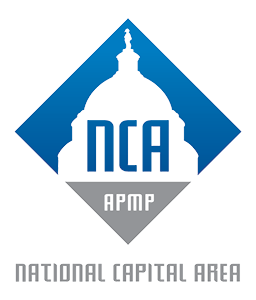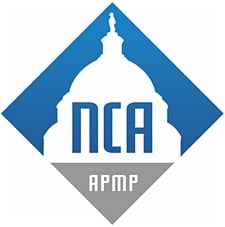Originally posted on Visible Thread’s blog – https://www.visiblethread.com/2021/09/the-benefits-of-rfp-automation-software-for-proposal-managers/
A Request for Proposal (RFP) is a document issued by a government or organization’s procurement department. It invites proposals from contractors to bid on a project.
The RFP process allows the buying organization to compare and contrast the businesses that are interested in carrying out the work and to assess them according to their capabilities and value for money. For businesses that survive and thrive on winning bids, a strong RFP process is crucial.
The RFP document outlines in detail the scope of work, the budget available, the skills or team needed, compliance criteria, and any special requirements. Businesses that are interested in winning the contract and carrying out the work put together a detailed response outlining their capabilities.
As government RFPs are paid for by taxpayers through public funding, RFP responses for them also provide an extra layer of transparency. This can also mean extra compliance obligations and bureaucracy.
Government contracting is a highly profitable space, accounting for $682 billion of the US federal budget in 2020. As such, the competition for bids can be intense, and companies who want to win big are investing in RFP software to give themselves an edge.

Streamlining the RFP process
For proposal teams, the process of putting a proposal together can be long-winded and onerous. Teams that manually assemble their responses find the process time-consuming and repetitive.
Some teams communicate by email, others via Slack. Some save their work to a shared drive, while others share it through Google Docs. It becomes impossible to practice good version control.
Too often, proposals involve copying and pasting information from past RFPs, Word and Excel files, PDFs and marketing documents. This introduces the possibility of inaccurate or outdated information finding its way into your new proposal and costing you the win.
One of the primary benefits of RFP automation software is that it can be used to build a robust proposal quickly while minimizing risk and increasing compliance.
What is RFP automation software?
If your response times are too slow, your process is convoluted, your colleagues are getting frustrated, or you’re losing ground to competitors, it might be time to invest in RFP automation.
In the past, the key to winning more bids was the three Ps: People, Process, and Paperwork – but today we can replace Paperwork with Platform. When you have the right people and process in place, RFP automation can become the engine that drives the bid management process.
RFP software automates key parts of the proposals process including shredding the document, creating compliance matrices, and ensuring compliance by spotting gaps. A proposals solution can also identify and shred critical FARs/DFARs clauses and flow-down clauses, as well as extract acronym definitions and occurrences.
Often, they allow your bid teams to save templates so you can save time by pulling generic material easily into your new proposal, and save your creative energy for creating content that is specific to the current bid. The results of automating these aspects of the processes are:
- Faster bid/ no-bid decisions freeing up time
- Less ambiguity and confusion
- Reduced ‘scope creep’
- Fewer errors and inaccuracies making their way to the final document
- Alignment across the proposals team on win themes
The impact of these improvements can be a better win rate and more contracts for your business.

What are the benefits of using RFP software?
The benefits of using RFP software lie in the ability to maximize efficiency while minimizing risk. RFP automation tools streamline the process and provide a central place where all teams working together on the bid can effectively collaborate.
- Efficiency and productivity: Improved productivity allows for a calmer process throughout the RFP lifecycle. Too often, the early days of a proposal are a mad scramble for information, and the final hours before submitting are chaotic.
- Automating the ‘grunt work’: You have more headspace to focus on the aspects of your process that will move the dial for your business. In the early days, this time can be spent on ideas and strategy, while those final hours can be spent on quality control to ensure you haven’t missed any critical areas of compliance.
- Time is money: The time saved can also be used to submit more proposals. If your organization ordinarily bids on 50 RFPs each year, automation might give you the time to bid on ten additional contracts. That could translate into two or three more wins each year – potentially worth millions of dollars.
- Collaboration and teamwork: An RFP can require input from your sales, marketing, product, finance, legal team, and more. When the process is manual, this can result in a siloed approach where each team has no insight into how their colleagues in other departments are working.
This can create an inconsistent, incoherent response with different grammar, tenses, and technical terminology used. RFP software helps teams work together to find a single tone of voice. It identifies and helps address any inconsistencies, unifying your proposal to increase the potential of winning the bid.
Organizations that understand the benefits of RFP automation and invest in it gain a competitive advantage over those that do not.
How document analysis software enhances proposal management
RFP automation software like VT Docs works with your existing IT infrastructure. It can help organizations respond to RFPs by ensuring they can make a decision on whether to bid for a contract or not quickly.
A proposals solution allows bid teams to shred a document in minutes rather than hours and get to work on a bid. Since it automatically creates compliance and responsibility matrices, the risk is minimized and sensitive clauses are not missed.
VT Docs compares documents and catches errors while VT Writer ensures a consistent tone and readability score. This is crucial on a document that numerous individuals and departments have fed into.
A survey of VisibleThread’s clients carried out in 2019 suggested that VT Docs software improved an organization’s win rate for RFPs by 9.8%. It was saving companies $528k in staff time per year and roughly 67 hours – more than eight days – per proposal.
Combined, VisibleThread’s clients saw an increase in revenue of $438,849,249, from improving their proposal win rate.
The best of both worlds: the human workforce and automation
So, as proposal solutions become more widespread, will humans become obsolete? Absolutely not. With RFP software handling the tedious copy-and-paste side of things, your team is free to brainstorm ideas or perform deeper quality analysis.
Proposal managers gain back time that can be spent developing a creative approach or a new strategy designed to win. Your team can spend time building relationships with decision-makers in government, developing a broad understanding of the business context for proposals, and leveraging those skills to help you win.
Start a 7-day free trial of VT Docs and see how it can revolutionize your RFP process. Try VT Docs For Free Now
![]()





